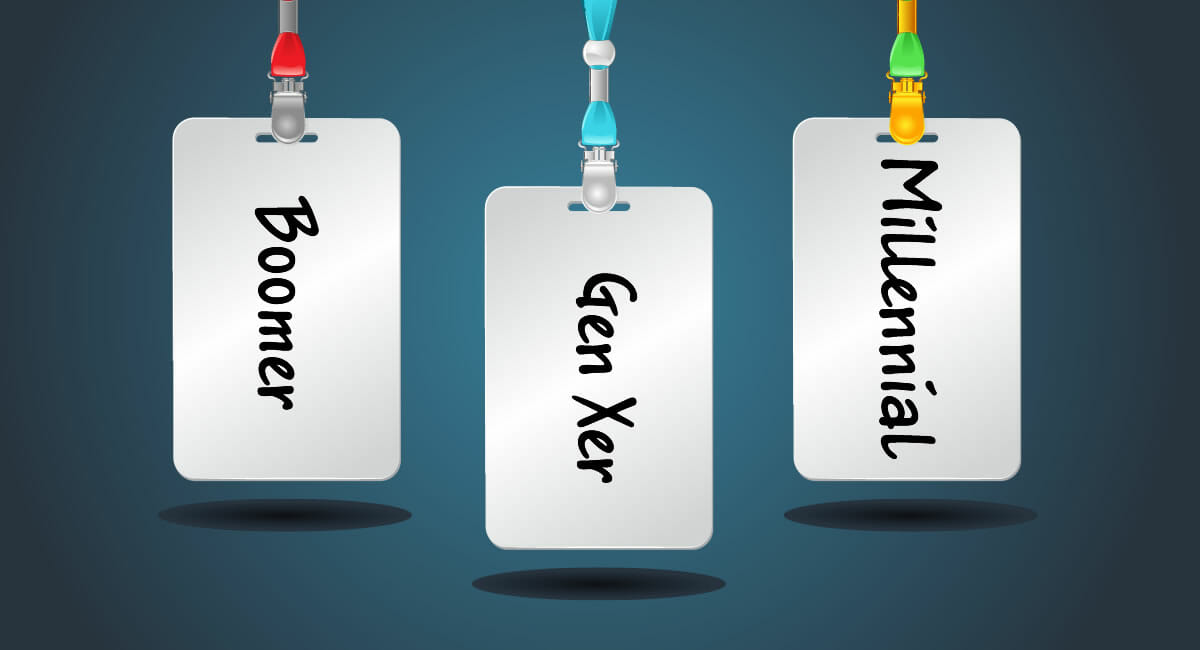Generations on the Job

Is it possible that our desire to understand, categorize, and label issues and behavior is getting in the way of optimizing our organizations’ most precious resources: its people?
Much has been written about generations in the workplace over the past decade. Too frequently, however, important information and insights are boiled down to simplistic profiles that fuel stereotypes. You’ve heard them…
- Traditionalists are rule following, loyal ‘company men’.
- Boomers are workaholics who value teamwork.
- Gen Xers are skeptical and self-reliant.
- Millennials are entitled techies looking for meaning at work.
Let’s face it. The workplace has never been more challenging. People must continuously do more with less… to the point where many feel that they’re doing everything with nearly nothing. Expectations – from customers and stakeholders – continue to escalate.
The volume of information available threatens to not just overwhelm but overtake workers. As a result, it’s easy to understand why people might gravitate toward and adopt generational short-hand as a way to quickly grasp a complex set of dynamics.
Participate in a related survey
Julie Winkle Giulioni and Olivia Gamber are conducting research to push the boundaries of current generational thinking. You can participate in a 7-10 minute survey (and be entered to win a $100 Amazon gift card.) Check back in 2016 to learn about their findings!
There’s no doubt about it. Generational differences certainly exist. You may experience a higher concentration of certain behaviors in particular age ranges. But too frequently, we lump everyone of a certain age together and paint them with the same brush. In this way, we don’t have to think too hard. We don’t have to think about hard things like:
- Who are these people with whom I work - really?
- How satisfied are they when they come to work each day?
- What motivates them?
- What’s important to them?
- What do different people – even within the same age group – value?
- What beliefs does a person hold that might influence how they feel about their work?
Given the frequently tense and time-starved environment in which many work, it’s understandable why people might think it’s easier to label an individual or group. It's easier to operate from some generic assumptions. It requires less – and it delivers less as well. Less respect. Less collaboration. Less engagement. Less connection. Less innovation. Less long-term opportunity.
But when we challenge ourselves to think beyond stereotypes and invest in cultivating a more holistic view of others, their motivations and values (despite their age or generational-associations), we get more. More rapport. More ideas. More energy. More results. And what workplace can’t benefit from this?
What do you think? How do generational stereotypes play out in your workplace? What can be done to combat limiting generational stereotypes?
- Beyond leadership lip service - February 19, 2024
- Corpus credibility: The key ingredient for artificial intelligence in learning & development - July 10, 2023
- Generations on the Job - December 10, 2015
